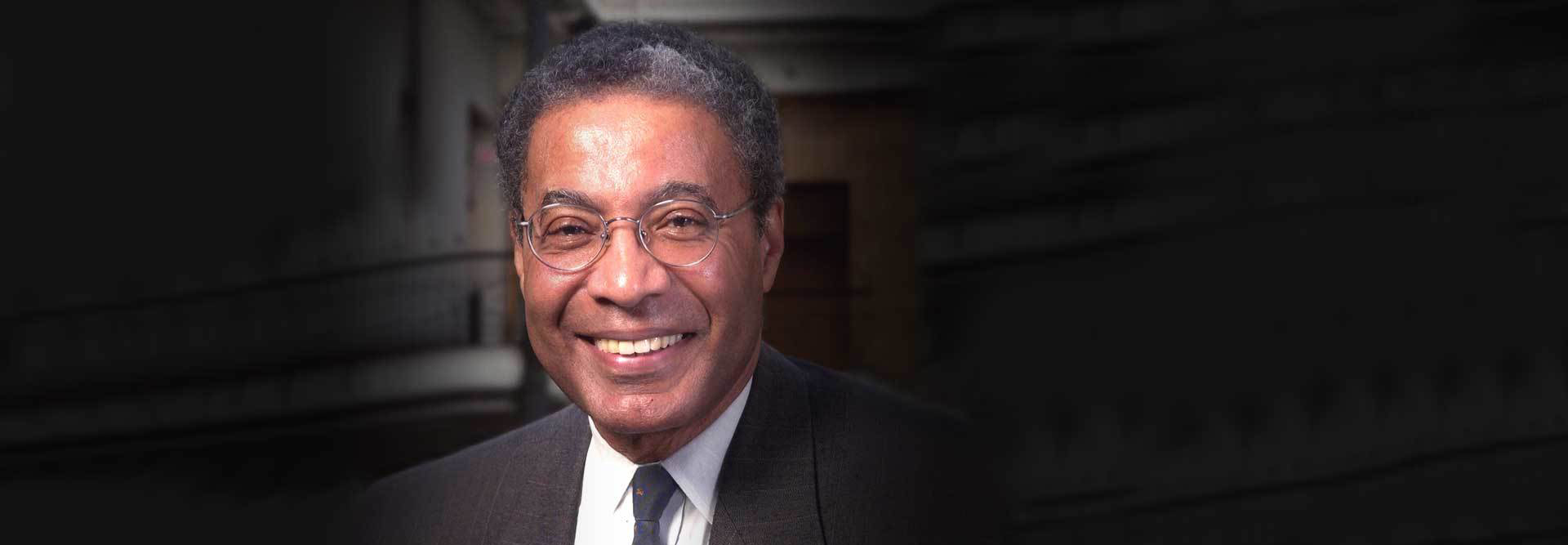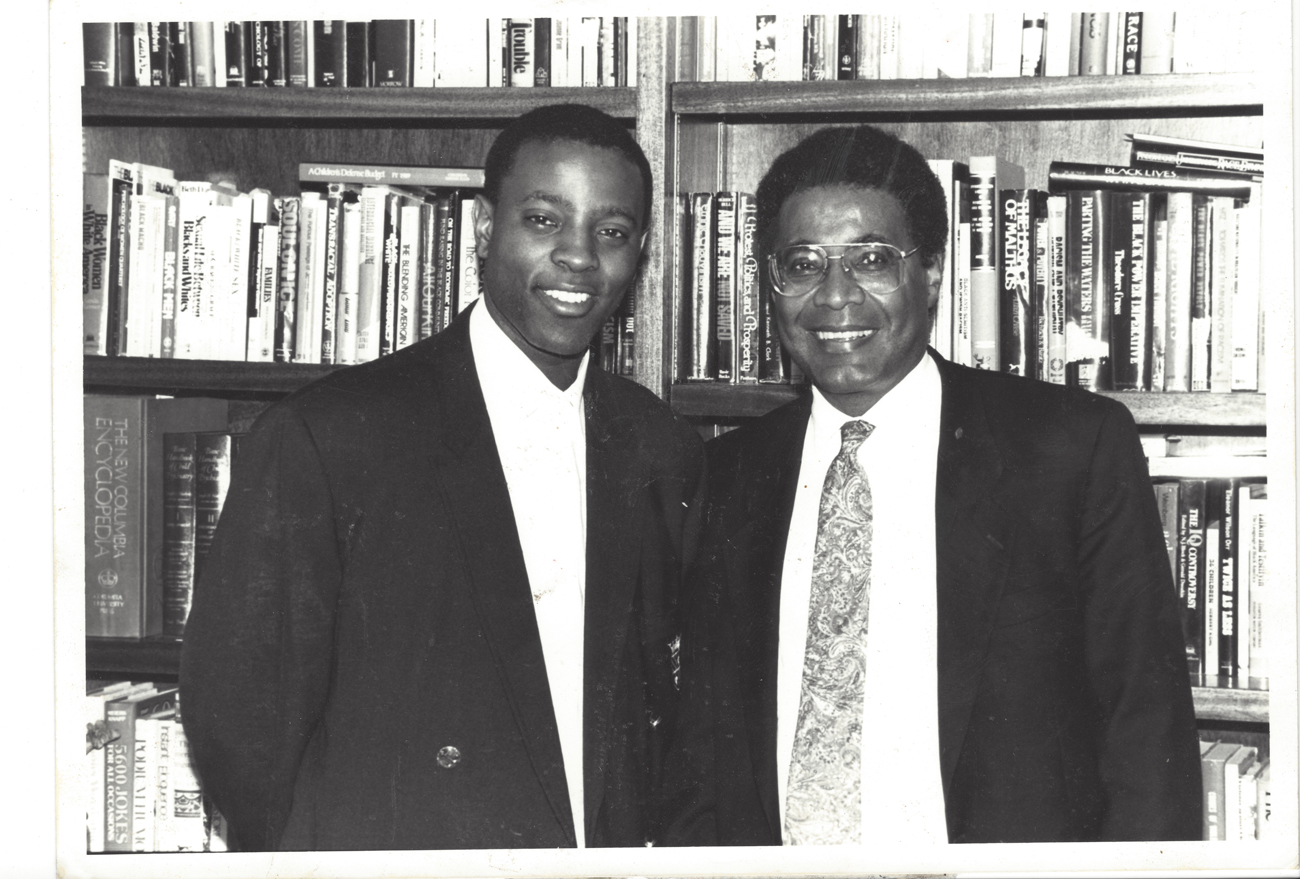THE IMPORTANCE OF SELF ESTEEM
Interview by William Singleton, Jr.
Singleton: How did you succeed? Who helped you? What hurt or
hindered you and what ways of thinking encourage you?
Dr. Poussaint: I think in my own success my family was very supportive. I grew up in East Harlem in New York in a large family of eight children. I was second from the youngest. A critical time for me was when I was nine I got sick with rheumatic fever and was hospitalized for three months. I lived in a convalescent home for three months, and when I came out I was not allowed to do any physic
al activity because rheumatic fever affects your heart. During that period I started to do a variety of things. I began to read a lot. I played musical instruments. I think a lot of the reading helped me academically, and I began to do very well in school because I re
ad a lot. Most of the kids in my neighborhood did not read much. That was not part of the cultural scene at that time. I had a lot of support from my family members and others who encouraged me and even my friends. Some of them teased you about being a sissy because you were doing well in school, but others were supportive. They liked the idea that you were smart.
Probably when I was ten or eleven I got the idea that I wanted to be a doctor. I think it had something about being sick and staying in the hospital for so long. About age ten I began to pursue that, what I had to do to go on to medical school, and I just stayed with it, the attitude that I was going to try and if I did not make it was not going to be because I did not try to do it. And so I would put in the hours and the time with my work to try to make it happen.
Singleton: Did you have a positive way of dealing with the people who tried to hinder you?
Dr. Poussaint: My way of dealing with that was that it made no sense. It was obviously kind of malicious that they would call me a sissy or fag because I was studying. It bothered me on one hand, on the other had I was looking at a long range goal. If I stuck with what I was doing it had to be beneficial to me. I was not seduced or made to feel guilty by them calling me names, since all of them did not. I had some friends who would not stand for that and who encouraged me to be a “brain” as they used to put it back then.
Singleton: What were you like when you were a kid? What sort of movies did you go to?
Dr. Poussaint: I went to the normal kind of movies. Adventure movies, everything that was there, World War II movies, Tarzan movies and some of the Black movies. I remember seeing Cabin in the Sky one of the early Black movies like Captain Marvel, and all those little serials they used to run back then, and then we did a lot of playing in the street in New York from stick ball to marbles to touch football; to just kick the can and run, just all kinds of games. It was like a whole culture from season to season in the streets and that is how we occupied our time. Parents let you out and you would go play and come back home. A lot of the activities were mostly developed by the kids and they would pass them on to each new group as you moved up and got older.
Singleton: I read your history and I was amazed at the similarities that a lot of people experience or problems they have to go through. For instance, a potential landlord of UCLA did not want to rent to you because you were Black. Later you said to overcome things like this you must be vigilant, bold and aggressive. Will you give us some examples of this?
Dr. Poussaint: I think you have to keep persisting and fighting and not giving up. In the case of the landlord who did not rent to Blacks, I finally got a place somewhere near UCLA and I eventually moved to another building. That is, I was not going to accept “No” for an answer. I wrote complaints about these people even though they did nothing about it at that time. I also made sure that I stayed in touch with organizations that were fighting things like that from the NAACP to local organizations. I always thought that was an important part of doing whatever you wanted to do.
Singleton: There are questions on self esteem. I am interested in this area because I have seen a lot of people who refer to themselves negatively and I was very interested in what you had to say about this. Do you believe that the widely accepted theory that racial self hatred is an underlying cause of many Black social and psychological difficulties is grossly overstated, or why not.
Dr. Poussaint: I think that you just can not go with the self-hatred thesis itself. I think there are some elements of people feeling a sense of inferiority but it is also because they actually meet with discrimination and get negative signals from the environment that actually discourage them, that is, a reaction to what they might be feeling from the nation as a whole or their place in it. Black people have always been unwelcome, and that will affect your self esteem.
Singleton: And then the suppressed rage?
Dr. Poussaint: I think we have always controlled a lot of anger even in the worst of times. From a psychological standpoint when you have a lot of suppressed anger sometimes it makes you depressed and sometimes it makes you not like yourself as well, and that dealing with all of that can help. A lot of other elements of self esteem can help too and that is how children are raised, how much the family has been able to buffer the children from some of the institutionalized forms of racism. I am talking about what books you read to children and what fairy tales. Is it multi-cultural?
Do you have things about Black people or are you just giving them the traditional material, all of the kings and queens and princesses are White, so that a Black kid using traditional material by age four is going to think there is no such thing as Black kings, queens, or princesses, or so on, and that the world is controlled by Whites. This is even true of comic characters, Superman, Bat Man, and He Man of the Universe. All of these super powerful people are images that kids fantasize about are not Black so a Black kid is not going to see himself as someone who is in charge, as someone who is in control or someone with power, if you just go with the normal dose of what society gives you. I think that affects self esteem too. Now this can be counteracted by the things that the parents do in letting their children know about their work and loving them and respecting them, and also providing them with alternative kinds of materials so that they feel a part of not only this country but a part of the world.
Singleton: I was wondering if this should be a point that we should be building up self esteem and destroying the racist assault of the esteem of people.
Dr. Poussaint: Yes, I think you have to do both. I think that it is good for the mental health of Black people to fight back, to struggle back and not accept their condition. That in itself can build self esteem, the fact that you are not lying down passively and just taking it back


